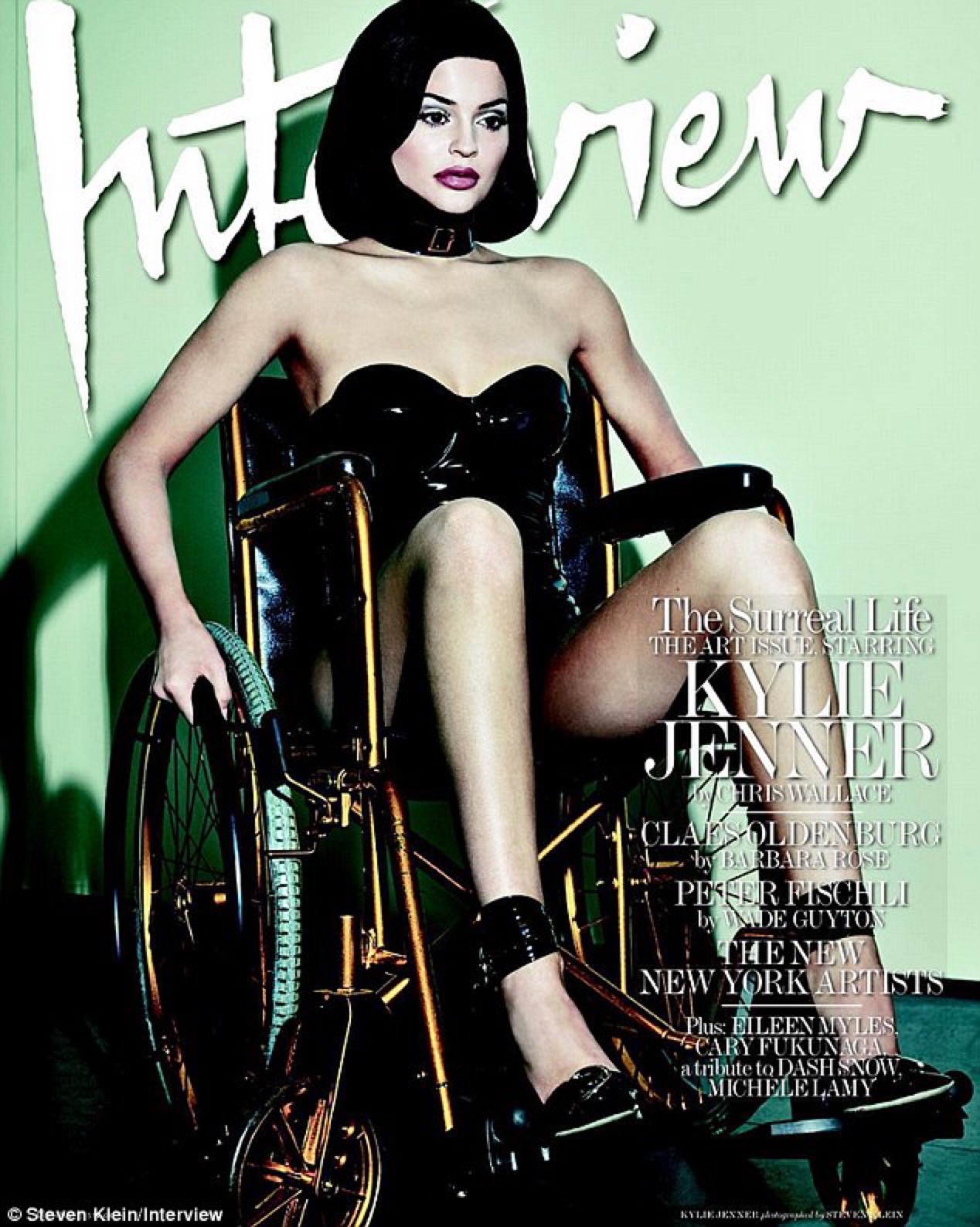I'm not going to vilify Kylie Jenner for using a wheelchair in a recent photoshoot for Interview magazine. I am sure that she was sold the concept by Steven Klein and the team at the magazine, and would have been convinced it was a good idea. She won't have had advice from any sensible person who might have recognised that this was possibly not the best plan. Attacking her personally almost legitimises the feature, in which she talks about how she constantly worries that people are making negative comments about her. This was the reasoning behind the entire story of the shoot, "placing Kylie in positions of power and control" and "to unpack Kylie's status as both engineer of her image and object of attention."

It is these words I have a problem with. Being sat in a wheelchair is not a position of power or control. In a manual wheelchair, I don't have the ability to self-propel, and am entirely reliant on a companion to get me anywhere. Even in a motorised chair, I still can't just go out and use public transport to get where I need to go on a whim. Every trip I make is planned, I have to arrange assistance to get me on and off trains, and you can't imagine how it feels to need to alight and have no one show up, with each minute that goes by hoping that the train doesn't try to leave with you stuck waiting for a ramp. I have literally no choice about how I get around, what speed I go at and where I can and cannot go. Despite changes in the law twenty years ago, so much of the world is still inaccessible to me, and I guarantee that if you are able-bodied, you don't notice.
Regarding being "an engineer of [one's] image and object of attention", to use a wheelchair to demonstrate this is laughable. In a wheelchair, I have no power over how I'm seen by the public, if I'm seen at all. Just this week, a man didn't see me in front of him, tripped, and fell on top of me, his elbow digging into my head and his other hand on my lap. He apologised, but then rushed off without even asking if I was alright. It made me feel like nothing.
The rest of the time, I am desexualised and infantilised. As soon as I'm in my wheelchair, any prospect of being seen as a potential partner is out the window. Any prospect of even being treated like an equal. Once, when out shopping with my mother, she decided to fill in a form to get a store card. I was in my manual chair, so couldn't go off by myself, and I just sat and waited like anybody else would. However, when she was finished, the sales assistant leaned over the desk to me and said, "And you've been very good, haven't you?" I'm not sure what she was expecting, perhaps for me to have some sort of fit or start screaming the place down, and her only reasoning for treating me this way was because I was in my chair.
Kylie did speak about the wheelchair in the interview, comparing the use of it to the limitations she faces because she's famous. I'm not entirely sure what these are, with her being a young, beautiful, able-bodied, wealthy woman. I understand that she might find it sometimes difficult to be discussed in the press so much, but that is in no way the same. Her privilege offers her any opportunity available, whereas my disability has taken so many away. At eighteen I suddenly lost the entire life I had planned, in total opposition to Kylie, whose life is just beginning. I understand other wheelchair users are upset by these comments because they feel their chair gives them freedom, but I just can't see mine that way. I wish I could, but I have yet to let go of being ambulant.
Fame is not a disability. My illness stole my future, and Kylie Jenner has no idea how that feels.





